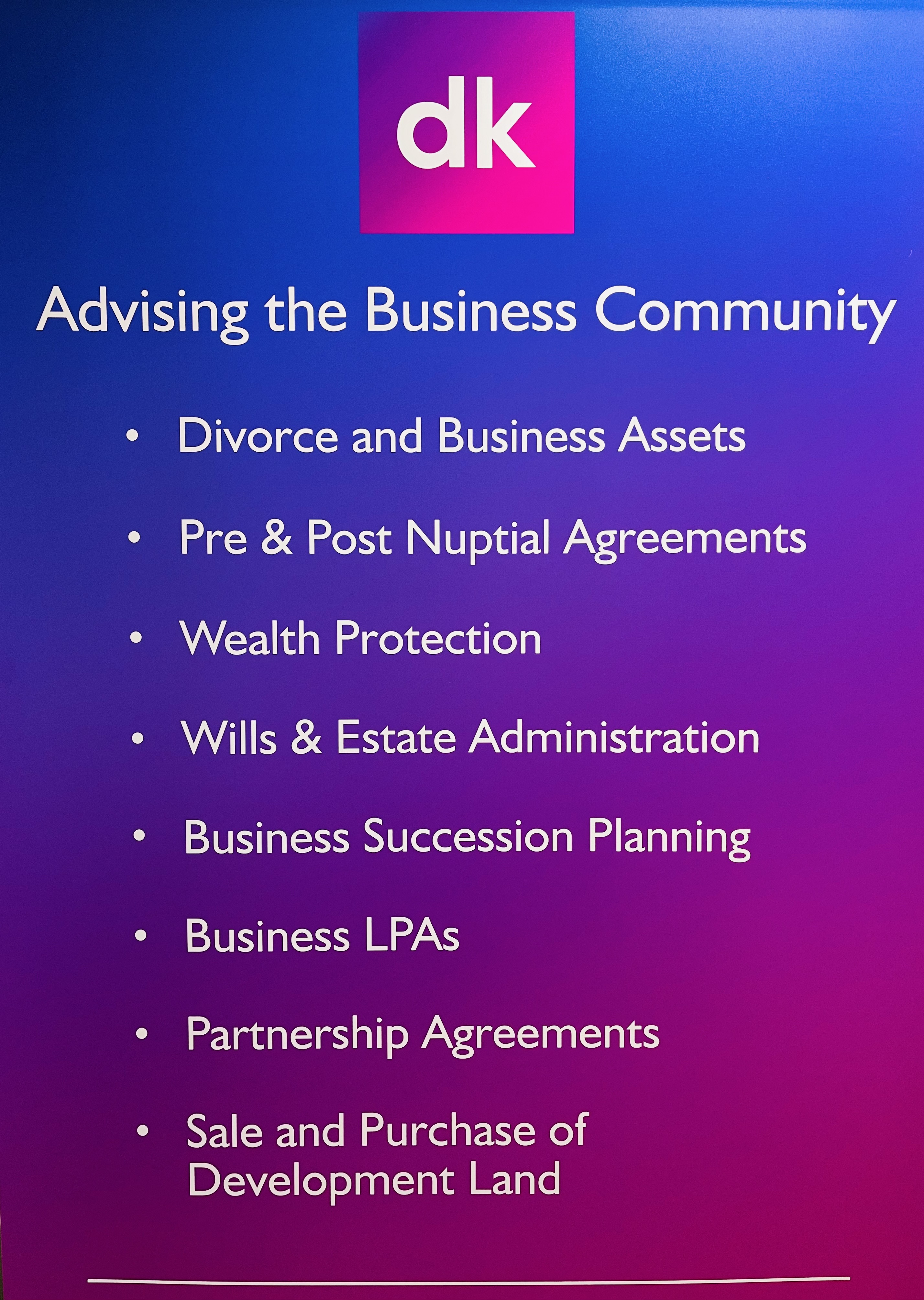Divorce: Our Proactive 360 Degree Approach
Collaborating with Other Professionals to Protect Your Interests
Considering divorce when you have high net wealth and business interests can seem overwhelming.
How can we help with your divorce?
At Denney King, we are experienced in dealing with financial proceedings involving business assets and inherited wealth. We understand the unique challenges of dealing with complex and high value assets in divorce proceedings and have the expertise to help you navigate this process. We also understand that this can be a stressful process during which you need clear, practical, commercially focused and jargon free advice.
What makes us different?
One of the things that sets us apart is our commitment to collaborating with other trusted professionals to ensure that there is a 360 degree approach to protecting your financial interests. We understand that your divorce may involve complex financial and legal issues, as well as emotional ones, and we are dedicated to working closely with your existing trusted advisors such as accountants and financial advisors.
By collaborating with other professionals, we can provide a comprehensive and holistic approach to advising you on your divorce. This means that we will take into account all of the factors that may impact upon your settlement, including any tax implications, financial projections and any potential risks or liabilities which may affect any long term tax or wealth protection planning.
We pride ourselves on working together collaboratively and adopting a proactive solutions focused approach to your case. We are human lawyers putting people at the heart of everything we do.
What’s next?
If you are facing a divorce and wish to protect your position, don’t hesitate to contact our experienced lawyers at Denney King. Call Mercedes on 07935 833633 for an initial conversation or email her at mercedes@denneyking.co.uk to request a call back.

